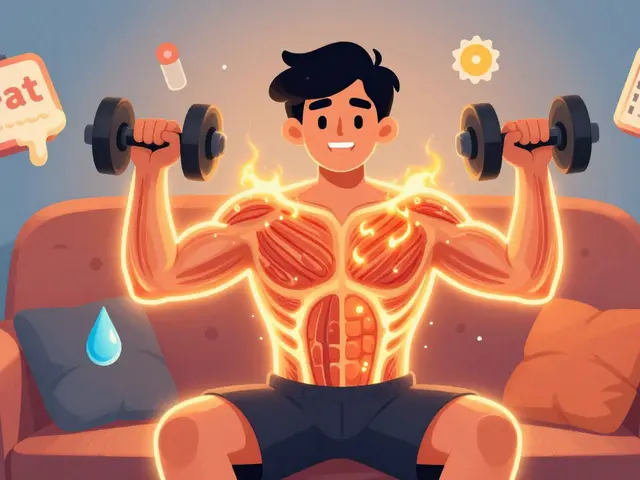Non-Motor Symptoms: What They Are and How to Deal With Them
If you’ve heard the term “non‑motor symptoms” and wondered what it means, you’re not alone. These are the hidden side effects of conditions like Parkinson’s, multiple sclerosis, or even certain meds that don’t involve movement – think mood swings, sleep problems, constipation, or memory lapses. They often sneak up on you, affect daily life, and get less attention than tremors or stiffness.
Why should you care? Because non‑motor symptoms can be just as disruptive as the obvious physical signs. A restless night, sudden anxiety, or an upset stomach can lower your quality of life and even mask the real disease underneath. Recognizing them early helps you get the right treatment and avoid unnecessary frustration.
Common Types You Might Notice
Here’s a quick rundown of the most frequent non‑motor complaints:
- Mood changes: depression, anxiety, irritability – often linked to brain chemistry shifts.
- Sleep issues: insomnia, vivid dreams, REM sleep behavior disorder.
- Autonomic problems: constipation, dry mouth, low blood pressure when standing.
- Cognitive quirks: memory slips, trouble concentrating, slowed thinking.
- Pain and fatigue: persistent aches or a feeling of being constantly drained.
Spotting any of these in yourself or a loved one is a cue to talk to a doctor. They’ll likely run a few simple questionnaires and may adjust your medication or suggest supportive therapies.
Practical Tips to Manage Them
Track what you feel. Keep a daily log of mood, sleep, bowel habits, and energy levels. Patterns help clinicians pinpoint the cause.
Stay active. Light exercise – walking, stretching, yoga – can improve mood and gut motility without overexerting muscles.
Mind your diet. Fiber‑rich foods, plenty of water, and regular meals combat constipation. Small caffeine amounts may boost alertness if sleep isn’t an issue.
Prioritize sleep hygiene. Stick to a bedtime routine, dim lights an hour before bed, and avoid screens. If you suspect REM sleep disorder, mention it – a doctor can adjust meds or suggest safety measures.
Talk about mental health. Counseling, support groups, or even short daily meditation sessions reduce anxiety and depression. Many insurers cover these services when linked to a chronic condition.
Remember, non‑motor symptoms are treatable. Medications like antidepressants, stool softeners, or sleep aids might be added, but lifestyle tweaks often make the biggest difference.
If you’re browsing our site for more details, check out articles on specific drugs (like Zanaflex or Baclofen) and how they can affect non‑motor symptoms. We also cover savings tips, safety guides for online pharmacies, and updates on new health apps that monitor symptoms in real time.
Bottom line: don’t ignore the subtle signs. A quick chat with your healthcare provider, a simple diary, and some everyday adjustments can turn those hidden issues into manageable parts of your day. Stay informed, stay proactive, and let us help you navigate the whole health picture – motor and non‑motor alike.
In my recent research, I came across the role of Rasagiline in managing non-motor symptoms of Parkinson's Disease. It turns out that Rasagiline, a monoamine oxidase type B (MAO-B) inhibitor, is not only effective in slowing down the motor-related symptoms but also improving non-motor symptoms like fatigue, mood disorders, and cognitive decline. This medication is often used alongside other treatments for a more comprehensive approach in managing Parkinson's Disease. I found it fascinating how this drug can make a significant impact on patients' quality of life by addressing these non-motor symptoms. It's essential to spread awareness about Rasagiline's potential benefits in managing this complex condition.

